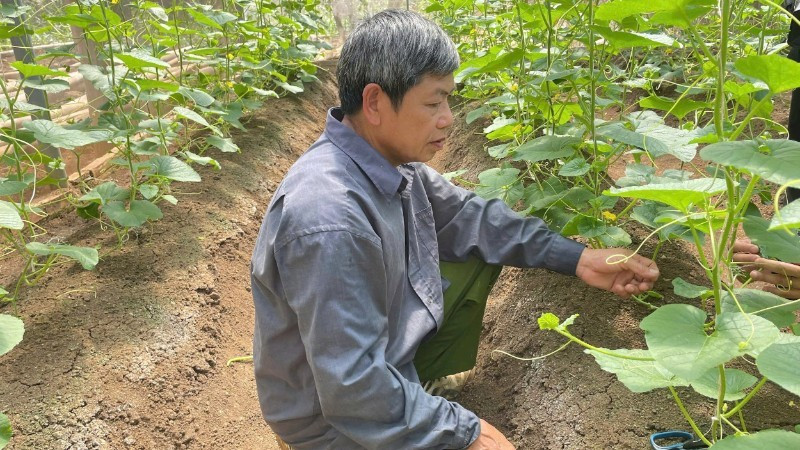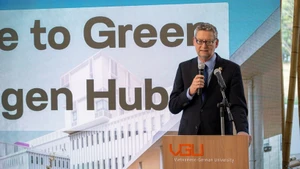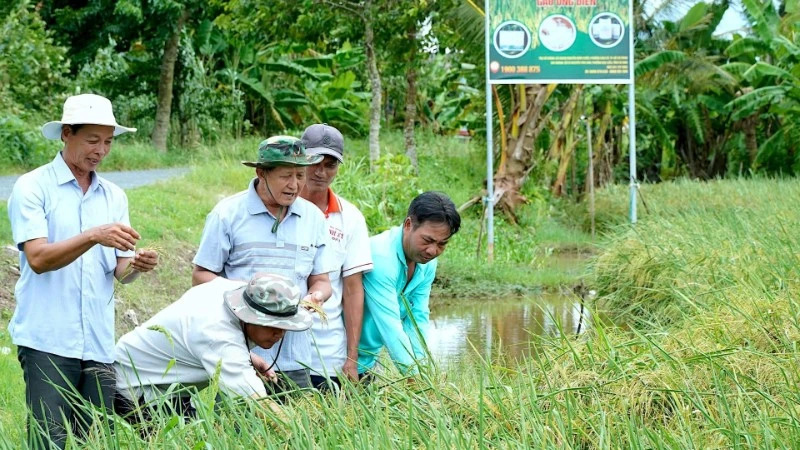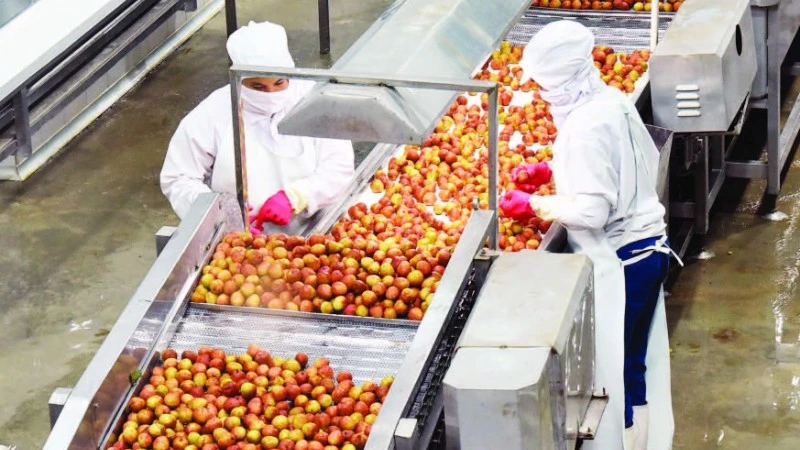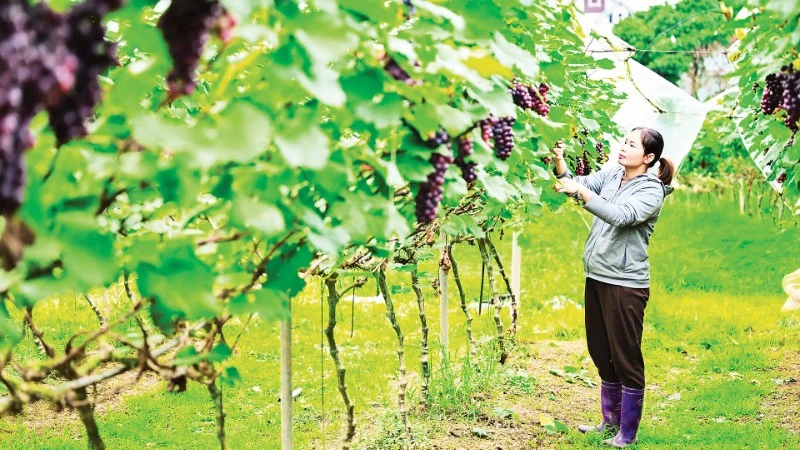IPHM is a crop management system based on specific environmental factors such as soil, water, harmful organisms, beneficial organisms, and weather.
The IPHM cultivation process helps optimise internal plant factors, reduce harmful external impacts, prevent pest outbreaks, enhance production value, and protect the ecosystem, human health, and biodiversity. The programme has brought practical benefits to farmers, enabling them to grasp the principles of safe agricultural production, minimise chemical use in the fields, and contribute to building a green, sustainable agriculture sector.
Comprehensive solutions to pest problems
In 2024, the Plant Protection and Crop Production Sub-department of Son La Province implemented an IPHM-based melon cultivation model in Bo Hamlet, Chieng An Ward, Son La City. According to Luu Thanh Nga, Head of Plant Protection at the Sub-department, the model covered over 300 square metres and involved three participating households.
Here, IPHM techniques for crop care were transferred to local farmers, from regular field inspections to monitor plant growth and promptly detect abnormal features or diseases, to assessing environmental factors such as soil, water, and weather that may affect plant health.
When plants are affected by pests or diseases, farmers are guided to analyse the causes, identify the root of the problem, and apply appropriate treatment methods. When interventions are needed, priority is given to biological or manual control measures, or the use of biological pesticides.
Additionally, farmers are taught to protect natural enemies, apply pesticides based on proper principles, balance the use of inorganic and organic fertilisers, and observe pre-harvest intervals. This approach not only improves plant health and pest resistance, enhances productivity and crop quality, but also helps reduce input costs.
Initial assessments show that the IPHM cultivation process helped farmers reduce 5–6 pesticide sprayings per crop, cut chemical fertiliser use by 20–30%, and most importantly, control chemical residue on produce, thereby creating high-quality products.
The Department of Crop Production and Plant Protection (under the Ministry of Agriculture and Environment) stated that, to promote IPHM implementation on key crops in Viet Nam, since 2022 the department has organised various training courses for IPHM Training of Trainers (TOT).
To date, there are 800 TOT-IPHM trainers nationwide at central and local levels. These trainers have received advanced training, focusing on IPHM principles, ICM (Integrated Crop Management), IPHM techniques and advances related to Integrated Pest Management (IPM); as well as updates on biological control methods, healthy seeds, soil health, plant nutrition, and ecological agriculture.
Developing human resources and scaling up IPHM
The Ministry of Agriculture and Environment aims that by 2030, over 90% of the country’s rice, vegetables, fruit trees, flowers, ornamental plants and medicinal herbs will be cultivated using IPHM; 70% of maize and industrial crop areas will apply IPHM; the use of chemical pesticides and inorganic fertilisers will be reduced by 30%; and economic efficiency will increase by 15–20% compared to conventional farming.
More than 80% of communes engaging in concentrated agricultural production should have at least five core farmers per commune/ward with knowledge, skills and effective application of IPHM, capable of guiding others, evaluating efficiency, and disseminating results to the community. Each centrally-run province or city is to have at least five national-level and 20 provincial-level IPHM trainers; each agricultural commune/ward to have at least two community IPHM facilitators.
To achieve this goal, the Ministry announced it would develop training plans for current crop production and plant protection staff at both central and local levels. It also plans to train national IPHM trainers to expand the provincial trainer pool; and conduct training for community facilitators and core farmers at the commune level (at least one national/regional TOT course per year).
The Ministry will also support the replication of IPHM application models for key crops at the grassroots level; incorporate IPHM and organic plant protection content into curricula at agricultural universities, colleges, and vocational schools.
In addition, the Ministry will review and guide organisations and individuals on applying the relevant policies to encourage IPHM adoption based on regional characteristics and target groups; support farmer-to-farmer training activities; and enable core farmers to carry out field experiments, apply technical advances, and share knowledge with other farmers.
